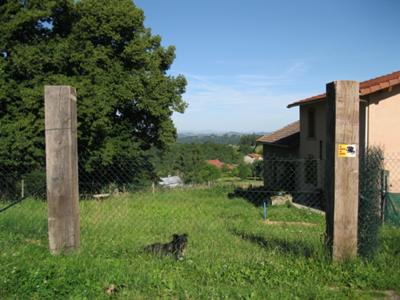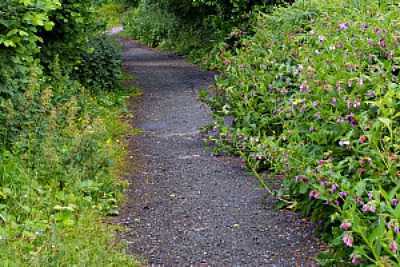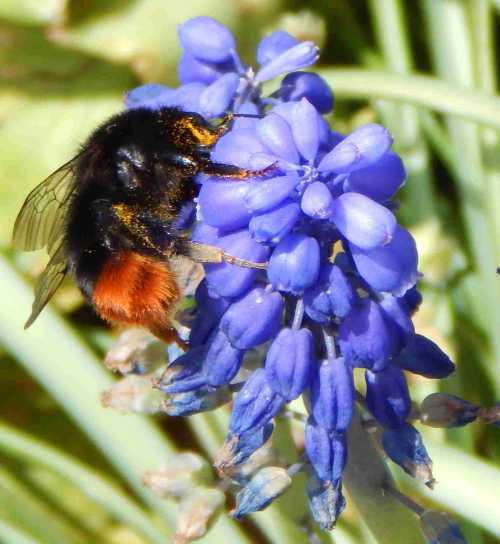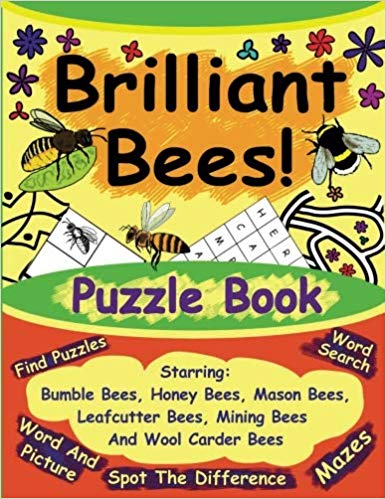Bees Welcome In My Garden!
by Tottie Limejuice (Auvergne - France)
I've just bought an old farm cottage in France's Auvergne.
The soil hasn't been touched for 20 years and I'm so lucky to have 2 huge lime (Tilia) trees on my boundary which are literally swarming with bees when in flower.
I'm hoping to leave as much of the "garden" as possible to wild flowers and grasses and plant only flowers and shrubs that will attract and sustain bees and other important pollinators.
Needless to say I will be doing it as organically as possible, not using any
chemicals and relying on companion planting and hard manual graft to control
anything that isn't so welcome, like lily beetles as I adore my lilies.
There's not much to see yet in a photo but have attached one with the lime
trees in full leaf.
The scent from the blossom is literally breathtaking - wish
I could attach that for you - no wonder the bees flock to it in their hundreds!
 The bees' favourite lime trees
The bees' favourite lime treesWebsite owner's note: People often forget that trees and shrubs are also important for bees! In fact, they make fantastic habitat.
The species of lime you have looks like a "good one" for bees - there are possibly some concerns about imported specimens.
UPDATE DECEMBER 2011:
Just thought some of you might be amused by the lengths I'm going to, to try not to disrupt bee and insect life in my garden, and the reaction of my French neighbours who take it as confirmation that I am completely batty!
Clearing some ground to make a bee friendly border but had to move clumps of
various things like buttercups to get at the soil to aerate it a little.
So
lovingly transplanted each one to my "lawn" (in effect just an area
of grass I keep a little shorter than elsewhere and have tables and chairs on).
My French builder was watching me in a mixture of incredulity and clearly
doubting my sanity, so I explained: "Where you see weeds, I see wildflowers
for the bees".
Website owner's note: I know what you mean, I am the same!
People are astonished when I speak up for dandelions, and other "weeds" the bees love!
Wildflowers of all kinds are so important for
bees and other pollinators.





